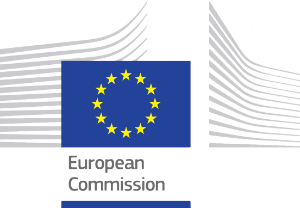- 8 September 2023 from 3:00-4:00 pm CET
- Facilitated by Rita Orlando - Michaela Podolakova - Josephine Hage and moderated by Paolo Montemurro - MateraHub Italy
- Free Registration is open until 7 September 2023 (3 pm) * HERE*
https://shorturl.at/kntwG - The online webinar is limited to 50 participants on a first come, first serve basis. The webinar will be recorded and the recording video will be available in the resources section.
ReinHerit Webinars are aimed at cultural heritage professionals. They will consist of a how to guide for small and medium-sized museum and cultural heritage organizations that documents processes, provides instruction, technical requirements and best practices for co-creation and collaboration between museums and cultural heritage institutions.
The Webinars are organised in the context of the Horizon2020 ReInHerit project, that aspires to disrupt the current status quo of communication, collaboration and innovation exchange between museums and cultural heritage sites, in a sense that it will connect cultural heritage collections and sites, and present Europe’s tangible and intangible heritage to citizens and tourists in their wider historical and geographical contexts. The ReInHerit project is proposing an innovative model of sustainable heritage management, through which a dynamic network will be born; this network comprises cultural heritage professionals, innovation and cultural heritage solution tech experts, researchers, national museums, regional and local museums, and representative managers of Heritage Label sites.
About this webinar:
The title of European Capital of Culture has become, in the last decade, a unique opportunity for small and medium size cities to valorise their cultural activities, their cultural heritage and local creative scenes by also boosting tourism, placing them on the European map of destinations.
More and more, over the years, the cities bidding for the title are reflecting not only on their cultural strategies and offers but also how new forms of tourism could be linked to them to be more sustainable, respectful of the local heritage and local communities, allowing the visitors to fully experience local life and locals not to suffer gentrification processes and huge changes in their daily habits.
The role of creative industries as promoter of innovation, fully in line with the concepts of the New European Bauhaus, has become more and more central in the bid books of the candidate cities and in the final programs of the selected one.
The webinar will explore these connections and dimensions by comparing the experiences of three European Capitals of Culture from the past (Kosice 2013), the present (Matera 2019) and the future (Chemnitz 2025) all of them with important experiences in connecting tourism, cultural heritage and creative industries and potential examples for future cities.
Speakers:
Michaela Podolakova - is the Executive Director of the destination management organisation Visit Košice, where she leads the development of tourism in the city, guiding the organisation to respond to emerging tourism trends with effective strategies using a data-driven approach and strengthening partnerships with various stakeholders. Her professional background links the organisation's activities with the cultural and creative sector and the management of processes through digitalisation and innovation. She oversees the development and promotion of Košice's tourism brand as an ideal destination for leisure and business travellers.
Rita Orlando - Background in architecture, since 2003 she has worked on urban and social regeneration projects, coordinating multidisciplinary and international working groups. In 2014, she joined the Matera 2019 team for the city's successful bid for the title of European Capital of Culture, managing experimental projects focused on innovation. Since 2016, she has been the manager of the Open Design School, a participatory and innovative design laboratory and partner of the New European Bauhaus. She is currently leading the cultural design team of the Foundation Matera Basilicata 2019.
Josephine Hage - is a creative industries advocate with a background in European Public Policy. She worked as researcher in the field of creative industries and was co-director of the bottom-up organization CREATIVE SAXONY. Her focus is on internationalization and cross innovation. Since 2023, she is curator of the flagship project Makers, Business & Arts of the European Capital of Culture Chemnitz 2025.

